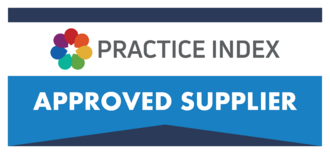What is Sudden Cardiac Arrest?

What is Sudden Cardiac Arrest?
Did you know that 10,000 people in the UK suffer Sudden Cardiac Arrest every year? That is equivalent to one every 6 minutes. Statistics show that less than 5% of these victims survive.
Sudden Cardiac Arrest is a condition in which the heart suddenly and unexpectedly stops beating.
If this happens, blood stops flowing to the brain and other vital organs and usually causes death if not treated within minutes.
Is Sudden Cardiac Arrest the Same as a Heart Attack?
Sudden Cardiac Arrest is not the same as a heart attack. A heart attack occurs if blood flow to part of the heart muscle is blocked and during a heart attack the heart doesn't usually suddenly stop beating. Sudden Cardiac Arrest can happen after or during recovery from a heart attack and people who have heart disease are at a higher risk. However, it can also occur in people who appear healthy and have no known heart disease or other risk factors.
What Causes Sudden Cardiac Arrest?
Sudden Cardiac Arrest (SCA) occurs when the heart unexpectedly stops beating, preventing blood from flowing to the brain and other vital organs. Without immediate treatment, sudden cardiac arrest can lead to death within minutes. It is different from a heart attack, although the two can be related.
Main Causes of Sudden Cardiac Arrest
1. Heart Rhythm Disorders (Arrhythmias)
-
Ventricular fibrillation (VF): The most common cause. This is a chaotic, irregular heart rhythm in the ventricles, preventing effective pumping.
-
Ventricular tachycardia (VT): A fast but regular rhythm that can deteriorate into VF.
2. Coronary Artery Disease (CAD)
-
The most frequent underlying cause in adults. Blocked arteries reduce blood flow to the heart, which can trigger arrhythmias.
3. Heart Attack (Myocardial Infarction)
-
A heart attack can lead to scarring or damage that disrupts the heart's electrical system, increasing the risk of sudden cardiac arrest.
4. Cardiomyopathy
-
Diseases that cause the heart muscle to become enlarged, thick, or rigid (e.g., hypertrophic or dilated cardiomyopathy) can interfere with the heart's electrical signals.
5. Congenital Heart Conditions
-
Structural abnormalities present at birth can increase the risk, especially in younger individuals.
6. Inherited Arrhythmia Syndromes
Inherited arrhythmia syndromes can be a cause and pose a higher risk of sudden cardiac arrest. Examples of these conditions include:
-
Long QT Syndrome
-
Brugada Syndrome
-
Wolff-Parkinson-White Syndrome
-
Catecholaminergic Polymorphic VT (CPVT)
These genetic conditions affect the heart's electrical system.
7. Heart Failure
-
Weakened heart muscles may predispose individuals to life-threatening arrhythmias.
8. Severe Electrolyte Imbalances
-
Low or high levels of potassium, magnesium, calcium, or sodium can disrupt the heart’s rhythm.
9. Drug Use and Toxicity
-
Stimulants and some prescription misused medications can provoke fatal arrhythmias.
10. Commotio Cordis
-
A rare event where a blunt impact to the chest disrupts the heart rhythm, even in a structurally normal heart.
What Can be Done to Increase the Survival Rate?
Most people who have Sudden Cardiac Arrest die from it, often within minutes. Rapid treatment with a defibrillator can be lifesaving. A defibrillator is a device that sends an electric shock to the heart to try to restore its normal rhythm.
Our Automated External Defibrillators (AEDs) can be used by bystanders to save the lives of people who are experiencing Sudden Cardiac Arrest. These portable devices are often found in public places, such as shopping malls, schools, airports and other businesses. Having an AED at your place of work could be potentially life saving.



